Accurate data are the cornerstone of effective policymaking. Governments rely on data to inform how laws, policies, plans, and programs are designed. National data also provide the basis to monitor the impact of laws, policies, plans, and programs after implementation.
When it comes to policies and programming to improve the inclusion of persons with disabilities in the economy, data on disparities in education, training, and employment between persons with, and without disabilities, can inform decision-making. Initiatives such as the Disability Labour Market Indicators (DLMI) database on ILOSTAT play an important role by providing a platform which provides timely and internationally comparable disability-disaggregated data for a range of labour market indicators.
Labour market data on persons with disabilities are lacking in African countries
However, not all data systems are created equal. At present, coverage of disability-disaggregated indicators for African countries is poor. For key labour market indicators on ILOSTAT, only about half of all countries in Africa have disability disaggregated data. This is a significant limitation: it is estimated that 16 per cent of the world’s population have disabilities and it is often the case that we see higher prevalence of disabilities in women.
Many countries do not include questions on disability status in their labour force surveys, prohibiting disaggregation; several countries have no regular labour force survey at all
The gaps which are seen at the indicator level stem from gaps in nationally representative household surveys. When it comes to collecting labour market data on people with disabilities, the best practice is for countries to integrate questions on disability status into routinely implemented labour force or other household surveys. The inclusion of these questions means that all labour market data collected in the survey can then be disaggregated by disability status. However, across Africa, this approach is not yet widespread.
Washington Group Short Set on Functioning
The Washington Group Short Set on Functioning (WG-SS) are a set of questions which assess the degree to which an individual experiences difficulty in functioning in one or more of the following domains: vision, hearing, mobility, cognition, self-care, and communication. Each question, which is phrased in terms of difficulties the respondent may have in doing certain activities associated with each domain, is answered on a scale ranging from ‘no difficulty’ to ‘some difficulty’, to ‘a lot of difficulty’ and, finally, to ‘cannot do at all’. The WG-SS marks a departure from medicalised measures and reflects the World Health Organization’s International Classification of Functioning, Disability, and Health (ICF) approach to conceptualising disability as a dynamic state which can affect a person’s ability to participate in daily life. The WG questions can be used to gather data on disability which is cross-nationally comparable. However, while it is one of the most widely used population-based measures of disability available today, there are limitations to the use of the WGSS, including concerns of particular importance to the African context. Nonetheless, the integration of the WG-SS in labour force surveys is feasible and facilitates valuable disaggregation of population-level data. The ILO has included these questions in the LFS model questionnaire and promoted their use.
Instead, most countries exist somewhere on a continuum of progress towards regular, disability-sensitive labour force surveys. This continuum ranges from countries that have no national labour market data reported to the ILO or that have labour market data that does not allow for disability disaggregation, to those that run regular labour force surveys which consistently contain a measure of disability allowing for disaggregation.
Across Africa, 31 countries have at least one year of disability-disaggregated data available on ILOSTAT in the 20-year period from 2002-2022. The map below highlights where on the continuum of progress described above, African countries lie. For instance, Rwanda has six time points – in 2014, 2017, 2018, 2019, 2020, and 2021 – where disability disaggregated data are available from the labour force survey. Similarly, Botswana and Senegal have five time points each, and Zambia and Ghana have four each. Some countries like Seychelles seem to be moving in the right direction, with at least two recent consecutive labour force surveys including disability data. However, while these countries are making progress, there are still 15 countries with only one survey time point where disability-disaggregation was possible and a further 23 countries with no disability-disaggregated data available.
Where data do exist, they reveal inequalities in outcomes among persons with and without disabilities
Where labour market data do exist, they highlight stark disparities between persons with, and without disabilities. For instance, in Senegal, 78 per cent of young persons with disabilities are not in employment, education, or training (NEET), compared to only 33 per cent of persons without disabilities. Even for those who are working, we see significantly lower levels of remuneration. For example, in Ghana and Nigeria, we see monthly earnings for people with disabilities are just 50 per cent and 49 per cent of earnings for persons without disabilities respectively. These kinds of data can be leveraged to make the case for investment in disability-inclusive social and economic policies. When they do not exist, it becomes more difficult to assess the scope of needs at a national level and target resources in an effective and equitable manner.
A new ILO survey module holds promise for illuminating barriers to employment among people with disabilities
While the next step for many countries is to move towards running regular labour force surveys which contain a disability measure, a new LFS module developed by ILO offers a new frontier in nuancing disability data. The LFS Add-on Module on Functional Difficulties and Barriers to Employment will further illuminate the drivers of inequalities between people with and without disabilities. The module includes information on the barriers and attitudes people with disabilities face in the labour market and endeavours to provide insight into the main drivers of these inequalities and to identify the areas for improvement and policy strengthening. The module includes questions, which will only be administered to people with disabilities, on facilitators of work, family support, work schedule, and work tasks arrangements, workplace adaptations, employers’ attitudes, workers’ attitudes, disability certification processes, and any receipt of cash or in-kind benefits.
Coupled with the regular collection of data on labour force participation, this module could meaningfully improve countries’ abilities to plan for and respond to the challenges faced by people with disabilities, and contribute to monitoring progress towards SDG targets 8.5 (on productive employment), 1.3 (on social protection coverage), and support reporting on articles 27 (on the right of all persons with disabilities to work on an equal basis with others) and 28 (on the right of persons with disabilities to social protection) of the UN Convention on the Rights of Persons with Disabilities (UNCRPD).
This module has been used in Mongolia and Iraq and there are plans to integrate it in the next labour force surveys to be run in Lesotho and Malawi later this year.
The final consideration for countries working to improve their disability data systems concerns intentional sampling
Because the share of the population with a disability is often low in Africa – lower than the 16 per cent global estimate – we often see very small sample sizes of persons with disabilities in nationally representative household surveys. These small samples limit the reliability of the estimates on key labour force indicators when disaggregated by disability status and inhibits the ability to carry out analysis looking at other demographic characteristics. This means that it is more difficult to get meaningful estimates of labour market outcomes for sub-groups – for example looking at impairment type, age, gender, or rural-urban location. Intentional sampling of people with disabilities is necessary to improve our ability to understand intersecting vulnerabilities and how they affect labour market outcomes.
Where countries are trying to make progress towards disability disaggregation and want to maximise the utility of the collected data, adaptations to sampling practices, such as stratified sampling, may be necessary to ensure adequate sample sizes of people with disabilities. How to achieve this will vary by context, but guidelines exist which can be used to support countries to ensure adequate representation of people with disabilities in their labour force datasets.
There is a strong disability equity case to be made for investment in data systems
Taken together, these facts – of low coverage of disability-disaggregated labour force data; of a clear pathway to increase coverage; and of the possibility of better understanding inequities in labour market outcomes – make a strong case for investment in data systems. Household-based sample surveys, such as labour force surveys or other surveys covering employment, should be updated to include a valid measure of disability status. This relatively low-cost amendment would allow existing data collection initiatives to be leveraged to advance disability inclusion through the disaggregation of the key indicators by disability status. Where possible, new survey modules that aim to understand barriers to employment for persons with disabilities can be added, too. And finally, to allow for deeper analysis by characteristics such as type of impairment, gender, or income, countries could examine how data systems can be optimised to intentionally represent people with disabilities in national surveys. In so doing, data systems can be strengthened to inform transformative policymaking and programming.
This blog was written by Xanthe Hunt and Mallory Baxter. Xanthe Hunt is a Senior Researcher at the Institute for Life Course Health Research at Stellenbosch University who consults on knowledge synthesis for the Mastercard Foundation. Mallory Baxter is the Strategic Research Lead at the Mastercard Foundation.
The Mastercard Foundation seeks a world where everyone has the opportunity to learn and prosper and through its Young Africa Works strategy is working to enable 30 million young women and men in Africa to secure dignified and fulfilling work by 2030. Recognizing that meaningful inclusion for young people with disabilities starts with listening and learning, the Mastercard Foundation has supported a research program to map the policy landscape and to hear directly from young people with disabilities. The first phase of this work, “Disability-Inclusive Education and Employment: Understanding the Context”, utilizes data from the ILO’s Disability Labour Market Indicators Database and other sources to map the policy and program landscape for inclusive education and employment in seven African countries. The series is available here.
The research was carried out in partnership with the International Centre for Evidence in Disability at the London School of Hygiene & Tropical Medicine, Addis Ababa University, the University of Ghana, the University of Nairobi , the University of Abuja, Lifetime Consulting, the Umbrella of Organizations of Persons with Disabilities in the fight against HIV & AIDS and for Health Promotion, the Global Research and Advocacy Group (GRAG) and the Medical Research Council/Uganda Virus Research Institute & London School of Hygiene & Tropical Medicine (MRC/UVRI & LSHTM) Uganda Research Unit.
Author
-

Mastercard Foundation
The Mastercard Foundation seeks a world where everyone has the opportunity to learn and prosper and through its Young Africa Works strategy is working to enable 30 million young women and men in Africa to secure dignified and fulfilling work by 2030.
View all posts
